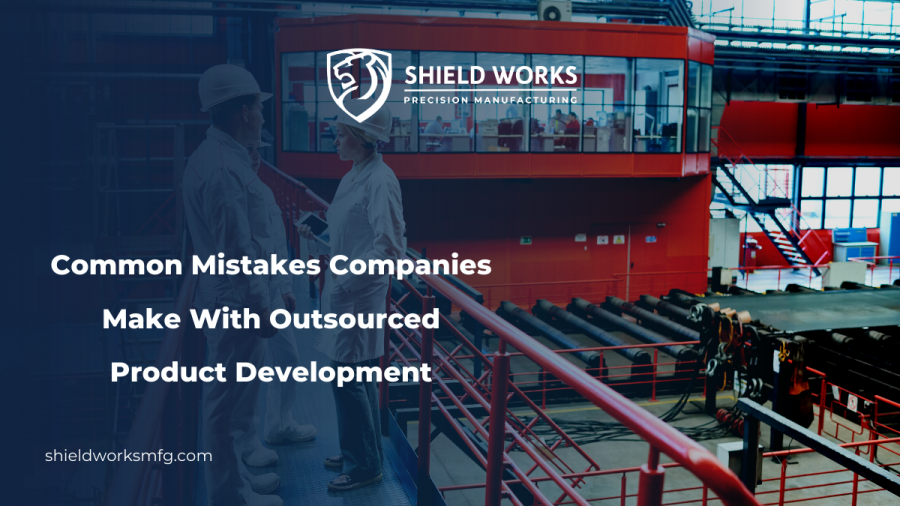Common Mistakes Companies Make With Outsourced Product Development

Did you know that 66% of companies with more than 50 employees outsource at least one of their business functions?
If you want to bring in a third party to perform a service for you, you might be interested in outsourcing product development.
Outsourcing this function can be a great way to get your products to market quickly. But it’s important to ensure you do it correctly. Mishandling the process can lead to costly disasters, including business stoppages.
Understanding the common mistakes with outsourced product development will be a good place to start. So read on to learn about some of the most common pitfalls you should avoid when outsourcing product development.
Not Defining the Project Scope Upfront
When outsourcing product development, it’s important to develop a clear and concise scope of work.
The last thing you want is ambiguity around what your outsourcing partner needs to deliver. Ambiguity can lead to frustration on both sides and could even result in abandoning the project altogether.
Make sure you have a solid understanding of what you need the partner to deliver and that you communicate it to the outsourcing partner upfront.
Clarity will ensure that both parties are on the same page from the outset and will avoid any misunderstandings further down the line.
Not Conducting Due Diligence
You’ll be making a mistake if you choose an outsourcing partner without knowing about their capabilities. Start by researching the company and its track record. Ensure the partner has the experience and expertise necessary to deliver on your project.
For example, if you’re outsourcing to China, you’ll want to check that the company has experience with China’s product development. Your China manufacturing partner should also be transparent and dependable so you can get answers whenever you need them.
Failing to do this due diligence can lead you to choose a partner that doesn’t have the necessary skills and experience. You’ll experience significant delays, and cost overruns as the inexperienced partners try to get up to speed on the project.
It’s also important to visit their facilities and meet with their team to better understand their processes and culture.
Not Having a Backup Plan
You might make the mistake of thinking that you’re safe working with a single outsourcing partner. After all, it can be tempting to put all your eggs in one basket. Relying on a single vendor can be risky.
Your outsourcing partner can go out of business or experience other difficulties. In such cases, you may find yourself without a product and a way to get your project back on track. That’s why it’s vital to have a backup plan in place.
This might mean working with multiple vendors or keeping some internal staff on hand to pick up the slack if needed. The goal is to ensure that someone can step in and take charge if your outsourced product development team is not meeting expectations.
A contingency plan will ensure you’re meeting your customers’ expectations even during unexpected difficulties.
Not Protecting Your Intellectual Property
It’s likely to ignore protecting your IP rights when outsourcing product development. Without adequate protection, someone might steal or copy your intellectual property. Such actions will prevent you from reaping the benefits of your investment.
You might be unaware of the risks until it’s too late. You can avoid this mistake by having strong contracts that clearly define who owns the intellectual property. The contract should also state the protections that exist.
You should also consider using nondisclosure agreements to protect your trade secrets. Such agreements will ensure that any IP created as part of the project remains your property and is not transferred to the outsourcing partner. You’ll protect your IP if you terminate the outsourcing relationship.
Not Being Prepared for Culture Clashes
Outsourcing product development to another country can lead to cultural clashes. There can be a difference in working styles, communication styles, and even values.
For instance, suppose you’re a western company outsourcing development to China. There will be a significant difference in how both cultures conduct business.
Chinese culture may place a higher emphasis on relationships. Your western culture is likely to be more results-oriented.
It’s important to be aware of such differences and make allowances for them. If possible, try to have someone on your team familiar with the outsourcing country’s culture.
You should also have clear communication channels and establish agreed-upon working hours. This will help to minimize misunderstandings and enable you to work more effectively. An understanding of cultures will also prevent disruptions to the project.
Failing to Manage the Relationship
Outsourcing product development is not a “set it and forget it” proposition. Once you’ve chosen a vendor, you need to manage the relationship. You should set clear expectations, communicate often, and monitor progress.
Many companies make the mistake of outsourcing and then forgetting about the project. This can lead to big problems down the road. You’re more likely to end up with a subpar product if you don’t invest in a good relationship with your partner.
You should be proactive and involved in the project. You should set clear milestones and expectations at the outset. It’s also vital to maintain regular communication with the outsourcing partner.
Stay on Top of Common Pitfalls with Outsourced Product Development
Outsourcing product development can be a great way to save time and money. But it’s important to avoid these common mistakes if you want to ensure a successful outcome. By being aware of common mistakes with outsourced product development, you can set your project up for success.
If you’re considering outsourcing development to China, consider having Shield Works as your outsourcing partner. We have 17 years of experience in product development in China, which makes us confident that we can guarantee you 100% satisfaction.
Contact us today to discuss your project.
